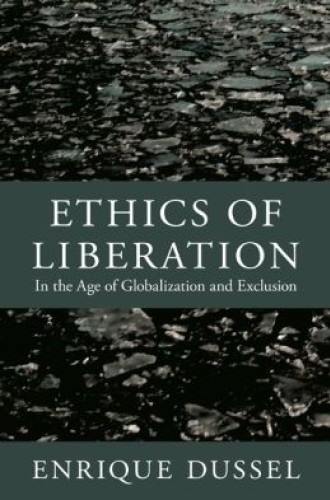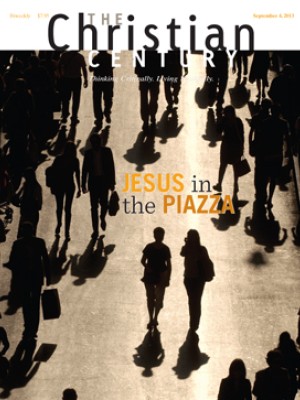Ethics of Liberation, by Enrique Dussel
Enrique Dussel’s Ethics of Liberation might well seem too theoretical and too filled with jargon to merit attention in these pages. But it is the most compelling articulation we have of the map of power and powerlessness in which we live our lives. It is sweepingly comprehensive, a tsunami of thought. Dussel, a philosophy professor in Mexico City, ducks none of the major issues and none of the intellectual figures of the West as he develops his thought about liberation.
The book pivots on the question of the nature of modernity, for which he offers two paradigms. On the one hand is the generally accepted Eurocentric perception. This model assumes that European (including U.S.) culture is superior and that people who are excluded from European culture are of no importance and can be readily discounted. The practical effect of this exclusion, Dussel shows, is to reduce all others to victims of the cultural, military, economic juggernaut of the establishment West.
Read our latest issue or browse back issues.
On the other hand, the paradigm of modernity championed by Dussel is one that values people outside the Eurocentric horizon and sees that they are significant players in modernity, not to be negated as victims. Dussel’s analysis is a contestation between these two paradigms.
Dussel calls for an “anti-hegemonic validation of the community of the victims.” What a mouthful of possibility. He proposes an ethic of liberation, a praxis that is aware of the force of hegemony and both critiques and disrupts it.
It is no surprise that Dussel’s analysis is unapologetically Marxian. There runs through these pages, however, an awareness that what finds expression in Marx is rooted in the deepest Jewish tradition of corporality and pain and possibility. Thus Dussel cites Antonio Gramsci’s allusion to a “small door through which the Messiah might enter,” he opines that the struggle for liberation has its best expression in the narrative of Moses, and he contends that present revolutionary eruptions are “commemorating other liberatory-messianic moments of past history”—surely an allusion to the Exodus narrative.
As Dussel sees it, we are participants in a modernity of exclusion and negation. But we are also heirs and practitioners of a text, Jewish and Christian, that protests against hegemony and breaks beyond it. As we move toward a global emergency in which there will be no middle ground for mumbling, it is an immense gain to have the categories and substance of critique and possibility spelled out as Dussel has done.
The work of “anti-hegemonic validation” is as hazardous as it is urgent. Dussel’s final sentence puts it graphically:
Such an ethics can make it possible for us to advance along the narrow edge, like acrobats on a high wire strung over the abyss of cynical ethical irresponsibility toward the victims or fundamentalist, death-loving paranoia that leads to the collective suicide of humanity.
Imagine: acrobats, and no nets!







